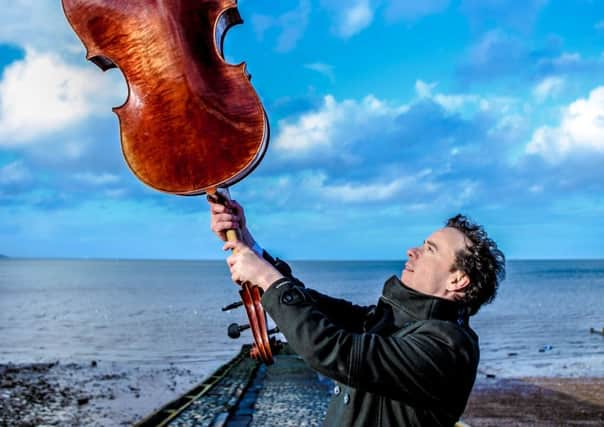Music reviews: Sound festival, various venues, Aberdeen


The result, named We Need to Talk/Il faut qu’on parle, was the culmination of a months-long project instigated by festival director Fiona Robertson, and it was as provocative as it was rewarding. French composer Frédéric Pattar’s elegant Around Agon began as a somewhat bad-tempered duel between the two players, battling over musical phrases as well as swiping their bows aggressively through the air, Errol Flynn-style. But it ended optimistically in a spirit of understanding and agreement, as though musical cooperation had trumped competition.
British composer Laura Bowler moved more directly into sexual politics in her Two Cellos, and probably bit off a bit more than she could properly digest as a result, but there were nonetheless unsettling frissons as the two performers caressed each other’s cellos and even scandalously swapped instruments. Both pieces were witty and timely, and epitomised the outward-looking spirit of partnership that has driven Sound for many years.
Advertisement
Hide AdAdvertisement
Hide AdIndeed, partnerships abounded across the festival’s opening weekend. Old and new collided in a collaboration between the Singh Quartet and electronic musician Vessel on Friday evening (****), in a blazing account of Janacek’s Intimate Letters Quartet, delivered entirely from memory by the Singh players and all the more immediate and gripping for that, followed by new work Written in Fire, a disturbing exploration of desire and obsession that pitted soaring lines from the string players against dark, thudding beats from Vessel.
Keening oboe met cutting-edge electronics on Saturday afternoon when crack British oboist Christopher Redgate partnered with sound chair Pete Stollery behind a mixing desk and laptop (*****). Edwin Roxburgh’s at the still point of the turning world made compelling use of the simplest of ideas: the oboe’s lines sampled, delayed, then retransmitted through speakers around the audience. Best of all, though, was Heinz Holliger’s classic and genuinely discomforting Cardiophonie, which uses the performer’s own heartbeat – relayed to the audience thanks to a contact mic – as its pulse, building to a predictably cataclysmic conclusion.
And the collaboration between oboist Sergio Vega Dominguez and cellist Martin Storey of the Red Note Ensemble and five emerging Scottish-based composers on Saturday lunchtime (****) threw up some affecting works. Gillian Walker’s Polaroid for Chris Marker and Kevin Leomo’s Silhouettes melded the two instruments’ sounds to ear-baffling effect, while Ewan Mackay’s beautifully crafted pastoral Over the Far Horizon was sensitive and darkly lyrical. They’re clearly names to watch, helped on their way by the nurturing partnerships that sound places at the heart of its work. David Kettle